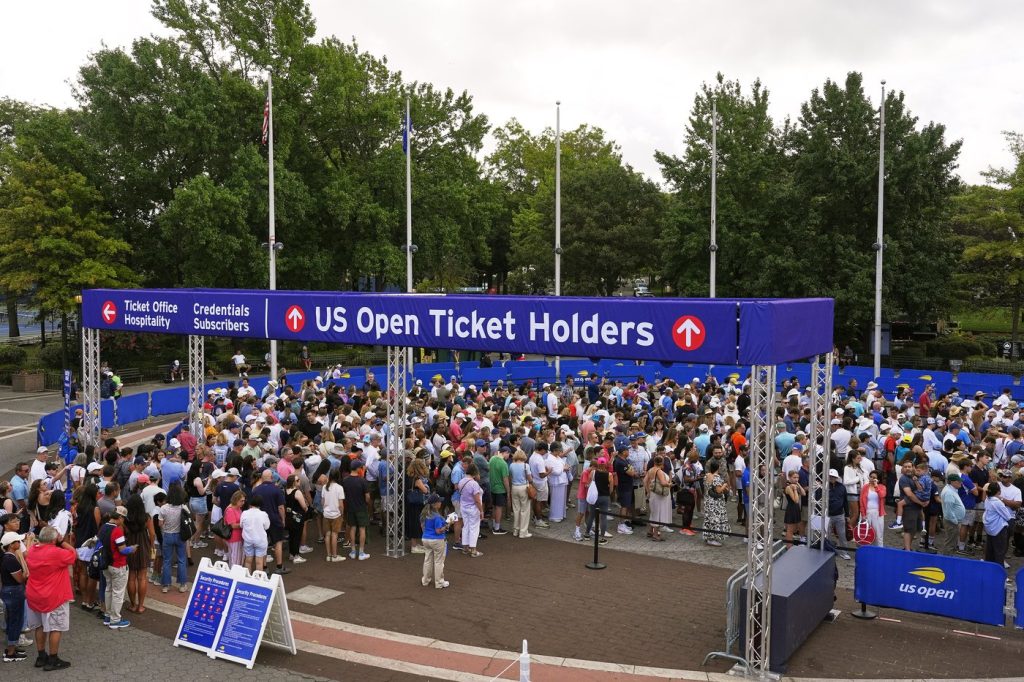NEW YORK (AP) — Roger Federer and Maria Sharapova have been vocal about their opposition to the concept of starting a Grand Slam tournament on a Sunday, a trend that began with the French Open nearly 20 years ago. This year, the U.S. Open follows suit with its new, earlier Day 1.
Despite the excitement of fans gathering at Flushing Meadows on Sunday morning, not all players are in favor of the Sunday start. Jordan Thompson, an Australian player who has been ranked as high as No. 26 in singles, expressed his dislike for the schedule change. “I hate the Sunday start,” Thompson stated. “Tournaments don’t start on Sunday; they finish on Sunday. Pretty sure no player would like (it), particularly me.”
Thompson was matched to play against Corentin Moutet on Sunday, marking the beginning of the competition at the U.S. Open. With this change, there will be 15 days of singles competition instead of 14, a decision largely influenced by the financial benefits associated with selling tickets for an additional day. Jessica Pegula, the 2024 U.S. Open runner-up and this year’s No. 4 seed, also voiced her concerns about the extra day, saying, “I’m not really a fan of it. I don’t know why they had to make it even longer. Well, I know why they did it — they get to sell tickets for an extra day.”
Pegula highlighted that many players had been opposed to this change, especially those who participate in events leading up to a Grand Slam, as it complicates their schedules. She emphasized the recurring issue within the sport where players feel their input is not solicited or valued. Wimbledon now stands as the only major tournament still commencing on a Monday, while both the French Open and the Australian Open have adopted Sunday starts.
“A lot of times, they ask for player feedback and when we do (respond), they don’t listen to anything we say,” she stated. Pegula was one of 20 players who signed a letter requesting better communication and a higher share of revenue related to player welfare. This recent change coincides with players expressing dissatisfaction with longer non-Slam tournaments that exceed a week.
The officials in charge of tennis argue that the increased prize money, now a record $85 million for the U.S. Open, including $5 million for singles champions, is a direct benefit of extending the tournament duration. USTA spokesman Brendan McIntyre explained that adding a 15th day of singles competition not only allows more fans the opportunity to experience the tournament in-person but also enhances television viewership globally during weekend days and nights.
Nevertheless, players like Thompson, Frances Tiafoe, a two-time U.S. Open semifinalist, and Matteo Arnaldi voiced their concerns regarding the potential disruption of the tournament rhythm. Tiafoe acknowledged the money-making aspect of the Sunday start but recognized that having two days off after an initial match could disrupt the traditional every-other-day match schedule that players are accustomed to. “It’s a little weird,” he remarked regarding the consequences of the Sunday opening.
As the U.S. Open embraces this new schedule, it has sparked a significant debate among players regarding their preferences and the organizers' intentions. With the future of tournament scheduling at stake, the reactions from athletes indicate a broader concern about the balance between commercial interests and the well-being of players.











